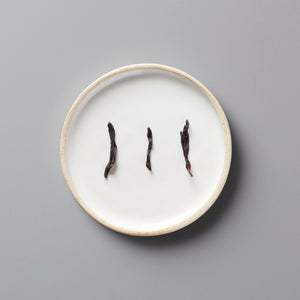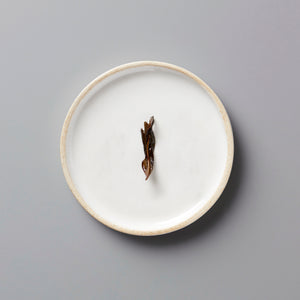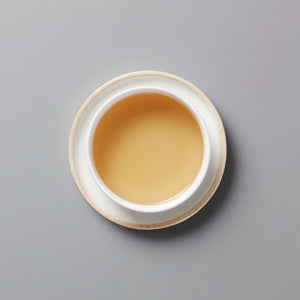Your Cart is Empty



Sold out
LIN'S DUCK | dancong oolong
$5.00 - $85.33
LIN'S DUCK is a dancong oolong from the Lin family in Chaozhou, Guangdong, China. This is our second production of ya shi xiang (colloquially known as "duck shit") after our first was so warmly received. This year we decided to up the ante—older trees, higher elevation, lighter bake—by sourcing from our new friend Song Lin, a 3rd generation dancong producer in the heart of the Fenghuang (read: Phoenix) mountains, where warm, humid, and daily misty high mountain conditions nurture deep-rooted tea trees. Ya shi xiang, one of the most storied and valued productions among the dancong standards, is a serious art form among Chaozhou producers, requiring a precise hand through its semi-qing xiang ("light fragrance") oxidation process. Not unlike this year's da wu ye, light oxidation oolongs are fundamentally easier to get wrong, as the bruise must be tightly controlled and halted precisely (a job made more difficult by constant variations in post-wither moisture content)—and imperfect batches still sell at market. On the cupping table this lot sang to us with genuine high fragrance, a proper roast that accents the teas inherent fruit and florality, and that distinct body sensation unique to truly old / high mountain teas. It's not quite lao cong ("old tree"), but it's not xiao shu ("young tree") either; a fine example of the effect tree age has on a finished tea.
To produce his spring ya shi xiang, Song's family hand-harvests 2-3 half-matured leaves from each shoot (excepting the buds), withers the material in the sun (on a nice day) or indoors with fans, bruises to about 45% oxidation by rolling in cloth sacks (think bread kneading), and then bakes the the tea in two rounds: first at 95ºC for 10 hours, then at 105ºC for 8 hours. His 80 year old ya shi xiang trees grow at 800 meters, and it shows—this tea is layered with the fermented depth of teas grown under stress, atop all the usual fruit and flowers of duck shit. Reminiscent of a dry pét-nat.
Our recommendation for steeping duck shit (how about that sentence?) is always the same: use gongfu grammage (5-7g per 115 ml) with water well-off the boil (185ºF-190ºF) for sparkling body and tropical tree fruit; slightly longer for a drying mouthful of flowers. Do not—we repeat—do not boil this tea, unless you want dry mouth like never before and the 5-cups-of-coffee shakes.
vintage —spring '21
style — ya shi xiang ("duck shit fragrance")
cultivar(s) — shui xian / ya shi xiang
region —Chaozhou, Guangdong, China
locale — Lin Dancong Farm
elevation —800 meters
producer —Song Lin
nomenclature — ya (鸭)—"duck" | shi (屎)—"shit" | xiang (香)—"scent"
STEEPING PARAMETERS
(use freshly boiled spring water)



